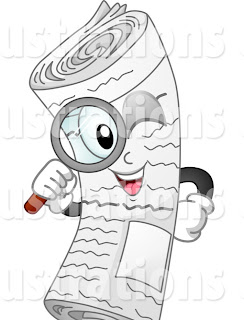On Friday, Donald Trump once again lashed out at the news
media, this time for no apparent reason. He endorsed a comment by his chief
strategist, Stephen Bannon, that the media are "the opposition party in
many ways."
Trump added, "I'm not talking about all of them . . .
but a big portion of the media, the dishonesty, total deceit and deception. It
makes them certainly partially the opposition party, absolutely."
That garbled prose seems to indicate that Trump is slightly
narrowing the number of his journalistic enemies. Earlier, he exempted no one
in a talk at the Central Intelligence Agency. There he said, "I have a
running war with the media. They are among the most dishonest human beings on
Earth, right?"
I'm a journalist. I've never considered myself to be a
dishonest person, let alone one of the most dishonest on the planet.
By coincidence, two of the most principled people I've ever been
acquainted with, both journalists, died recently. Their passing and Trump's
assaults on the profession caused me to spend some time recalling my hundreds
of encounters with journalists both as a newsman and as an information
specialist in government and private industry. How many individuals do I
remember practicing "deceit and deception?" Exactly two.
One was a young television reporter who interviewed me about
a Forest Service program. Before he turned on the camera, we agreed that he
would not ask questions in one area. To my amazement, his
 |
| Trump will be scrutinized as no other has been |
The other miscreant was a reporter for a small radio
station. He taped a speech I gave at a luncheon following the announcement of
the closing of a Job
Corps Center
It's only one person's experience, but two bad apples in a
barrel with hundreds may indicate there is little reason to disparage the
entire group.
Above all, journalists who follow the code of ethics that guides
the profession attempt to be objective. They often fail. Humans develop biases
and it is difficult, perhaps impossible, for anyone to completely set theirs
aside when reporting events or selecting which items to include in print or programs
and how to present the stories. Nevertheless, the true professionals strive for
personal integrity in their work and balance in the products.
When anyone, especially a person who frequently displays his
own lack of integrity, accuses journalists of deliberate dishonesty he is making
a big mistake. I take Trump's remarks along those lines as a personal insult, and
I've been out of the workaday information business for a long time. You can bet
many in the media are going to have more than the usual struggle to keep their anti-Trump
biases under control. They will try to treat him fairly, but they also will be
extra diligent in their responsibilities to serve as watchdogs over government,
and they will pull no punches in their reporting.
Mr. Trump can expect to see a whole lot of reports such as
the one that appeared in the January 24 New
York Times under this headline: "Trump Won't Back Down From His Voting
Fraud Lie. Here Are the Facts." An editor who had not been insulted by the
major player in the story might have created a more kindly label, yet it is not
"dishonest and deceitful."
Trump's assaults on the media ensure his activities will be
scrutinized as no other president's have been. Every move will be reported, and
not kindly. Who will win this "war"? We might get a clue from an historic figure
who participated in many wars:
"Four hostile newspapers are more to be feared than a
thousand bayonets."--Napoleon Bonaparte
